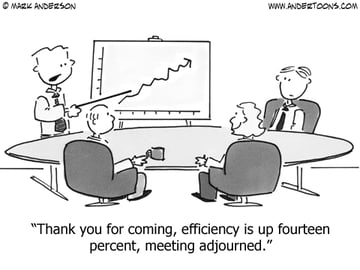 From the fast-food restaurants on every block to the drive-thru bank machines, we’ve become obsessed with getting what we want, when we want it, as quickly as possible. At the core of this intense need for efficiency stems one absolute truth: Time really is our most precious resource.
From the fast-food restaurants on every block to the drive-thru bank machines, we’ve become obsessed with getting what we want, when we want it, as quickly as possible. At the core of this intense need for efficiency stems one absolute truth: Time really is our most precious resource.
Why is time management considered a transferrable skill?
As kids, we felt stifled when our parents insisted on a specific dinnertime, bath time, bedtime, or curfew. We became frustrated when our teachers expected us to hand in a project by a specific deadline. However, all of these experiences not only contributed to our understanding that time needed to be used wisely, but they also forced us to adapt our lifestyle, goals, and work approach to fit within these time constraints.
Research by Empie (2013) reveals that students who worked on-campus while going to school, and who were employed by supervisors who collaborated with them to develop a work schedule, developed better time management skills. Having to work according to a specific work schedule and having to balance school, studying, and extracurricular activities, required these students to stay focused, and to learn how to use their available time more efficiently. This ability to manage time not only contributes to a student’s academic success, it also becomes a valuable work skill after they graduate (Huie, Winsler, & Kitsantas, 2014).
Why are time management skills are so important in an organization?
Time management refers to the ability to use time productively, which involves staying organized, working smarter rather than longer, and avoiding potential time-wasters. Research has shown that efficient use of time often results in less stress, less emotional exhaustion, and a greater sense of personal accomplishment. From mundane everyday needs such as filing to more serious endeavors like getting a work project done on time, being able to manage time is incredibly important. Many minutes or hours are wasted on a daily basis looking for things, trying to remember something that needs to be done, or going about a task in an illogical and inefficient manner. In a fast-paced business world, being efficient turns time into an ally rather than an enemy.
Moreover, in positions where a person is required to juggle multiple tasks, knowing how to cluster them and allocate time efficiently will prove to be much more useful than knowing how to multitask. Contrary to popular belief, multitasking impedes employees’ ability to get work done, particularly when they are required to switch from one complex task to another. Essentially, the interruptions and breaks in concentration are more likely to limit rather than improve productivity. Instead of forcing employees to divvy up their time and attention on multiple tasks and jump from one task to another, promote an organized work schedule in which each task and project has its own designated time.
Tips to improve your time management skills
- Analyze how you spend your time. Keep a log for two weeks that details how long it takes you to complete your tasks. If possible, compare your completion time to those of other people. If you discover that you are taking more time, find out what strategies your colleagues have implemented to complete the tasks more efficiently. If a comparison with others isn’t possible, analyze each of your tasks carefully, and try to determine where you can save more time (e.g. create templates for emails that you tend to send on a regular basis). After implementing a few time-saving strategies, conduct another time log test-run and compare you old completion times to your new ones.
- Use the last 15 minutes of your day to plan for tomorrow. Most people take at least a few minutes, if not more, to ease into their morning and pick up where they left off the day before. This is particularly true on Monday mornings, after spending the last two days thinking about anything but work! Instead of wasting time trying to “re-orient” your mind and remember what you were doing or what to get started on, try using the last few minutes of your last work day to plan the next day. Create a to-do list with priorities based on what you didn't get done and what new things may have come up (e.g. phone calls to return, emails to send, meetings to prepare for, etc.). This will jog your memory more quickly than coffee!
- Before starting your work for the day, pick your top 3 priorities. At the beginning of a new day, there is always such hope that we will accomplish all the things that are on our list. But as the day goes on, phone calls, emails, colleagues and other distractions arise and before you know it, the day is gone. To help deal with this, try picking 3 goals for the day. This strategy will help you focus on the top priority tasks, and if you get more done, then congratulations, you are ahead!
- Beat procrastination, a major time-waster, with a little “chiseling.” Find yourself putting off a project that you’re not in the mood to tackle? Start by working on it for 30-minute intervals throughout the day, followed by a break (or a more interesting task). Little by little, you’ll chisel away at the project. In fact, you may find yourself getting into such a great groove that you won’t want to stop! Large projects are less overwhelming when you tackle them a bit a time.
- Adapt your day to your body’s “clock.” For a week or two, pay close attention to the time of day when you are best able to focus. Is the early morning, when it's quiet and you're fresh, a productive time for you? Or do you get a lot done in the afternoon, after you've had time to settle into things? While you may not always have a choice of when you can work on something, you can try to schedule the most challenging aspects of a task, chore, or project for the time of day when you are the most alert, and use your less productive times for tasks that require less concentration.
- Learn to say “no.” With a schedule in place, you will soon get a good feeling for how much time things take and what you can realistically accomplish. If something new is asked of you, you can refer to your calendar and realistically determine whether you have the time. It is very important to learn to say no to commitments that you can't handle, that aren't necessary or that aren't important to you.

References
Empie, M. J. (2013). How graduates make meaning of their on-campus employment: A retrospective view. Dissertation Abstracts International, Section A: Humanities and Social Sciences, 73(10-A), no pagination specified.
Huie, F. C., Winsler, A., & Kitsantas, A. (2014). Employment and first-year college achievement: The role of self-regulation and motivation. Journal of Education and Work, 27(1), 110-135.
Peeters, M. A. G. & Rutte, C. G. (2005). Time Management Behavior as a Moderator for the Job Demand-Control Interaction. Journal of Occupational Health Psychology, 10(1), 64-75.
If you’re interested in using TIME - R (Time Management Evaluation - Revised) or other assessments, request a free trial for ARCH Profile here.
Want to learn more about using psychological tests for hiring, leadership development, career development or talent retention? Download our free eBook loaded with down-to-earth information about psychological testing for HR purposes.


